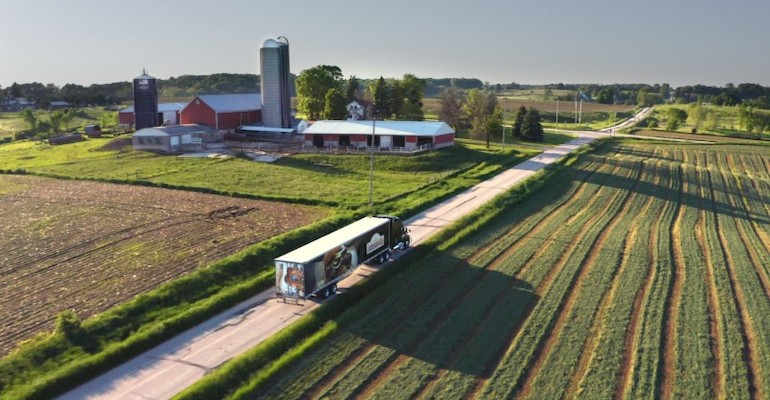Food Firms Likely to Face High Transportation Costs in 2022
Recent earnings reports suggest that costs to transport raw materials and finished goods will continue to rise next year.

Rising transportation costs are weighed heavily on food and beverage manufacturers in 2021, impacting prices for both raw materials and finished goods. Most major food players cited the issue in their most recent earnings reports as one of the greatest challenges they encountered over the course of the year.
Mondelez International’s chairman and chief executive officer Dirk Van De Put pointed out in a call this month that there is “a significant gap between demand and supply of trucking capacity and containers in places like US and the UK,” leading to turbulence in its supply chain.
Indeed, some 80,000 drivers are currently needed to alleviate ongoing supply chain issues and offset trucking industry labor loss in the United States, according to the American Trucking Associations.
“Our bigger challenges, and I think consistent with the industry, is actually transportation right now,” Robert J. Gamgort, the chairman and chief executive officer of beverage manufacturer Keurig Dr Pepper Inc., said in a meeting this September. “Customer pickups as well as shipments that we make that are not through our own fleet are increasingly challenged, where pickups don’t happen as scheduled and transportation is unreliable as well as incredibly costly.”
In response to these trying times, some companies are expanding their in-house fleets of trucks and others are turning to third-party companies to meet their transportation needs. Wisconsin-based sausage producer Johnsonville launched a new logistics company, Johnson Transport & Logistics LLC, to provide refrigerated trucking services to food and beverage manufacturers. The company plans to add more drivers and expand its truck inventory from 29 reefer trucks to 50 by next summer.
Private label food and beverage manufacturer Treehouse Foods is using several tactics to address its transportation problems. “We completed additional freight RFPs and, in some cases, we’ll utilize the spot market to ensure that we can get inputs and finish product to the right place at the right time, and we will further leverage lean and continuous improvement learnings throughout the network,” the firm’s president and CEO, Steven Oakland, stated in a shareholders call this month.
While many firms are actively making moves to counter these concerns, transportation costs will likely continue to be a major issue for food and beverage manufacturing operations in 2022. Companies will need to use creative thinking, as well as strategic investments and partnerships, to stay ahead of the headwinds in the coming year.
About the Author(s)
You May Also Like




